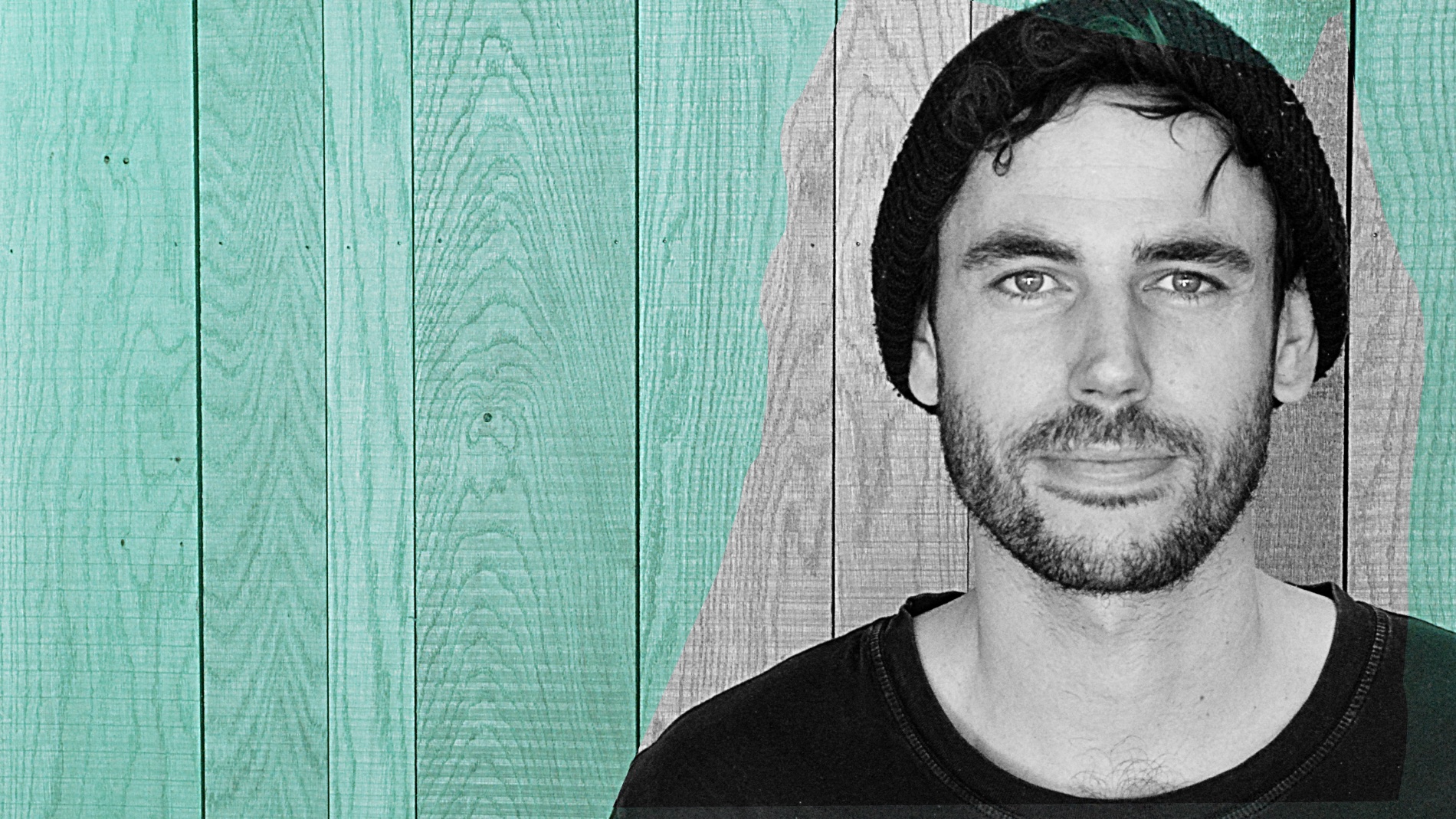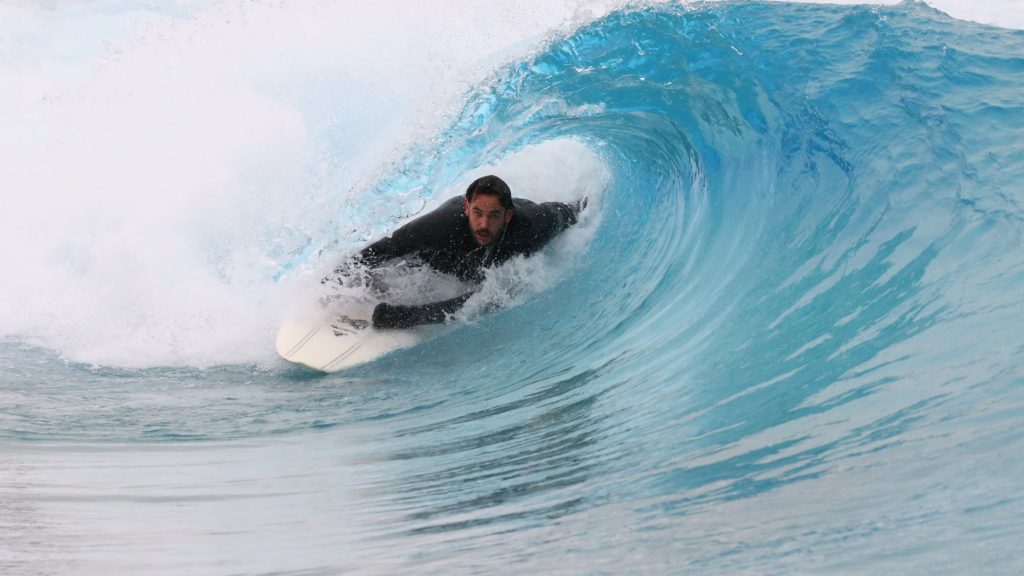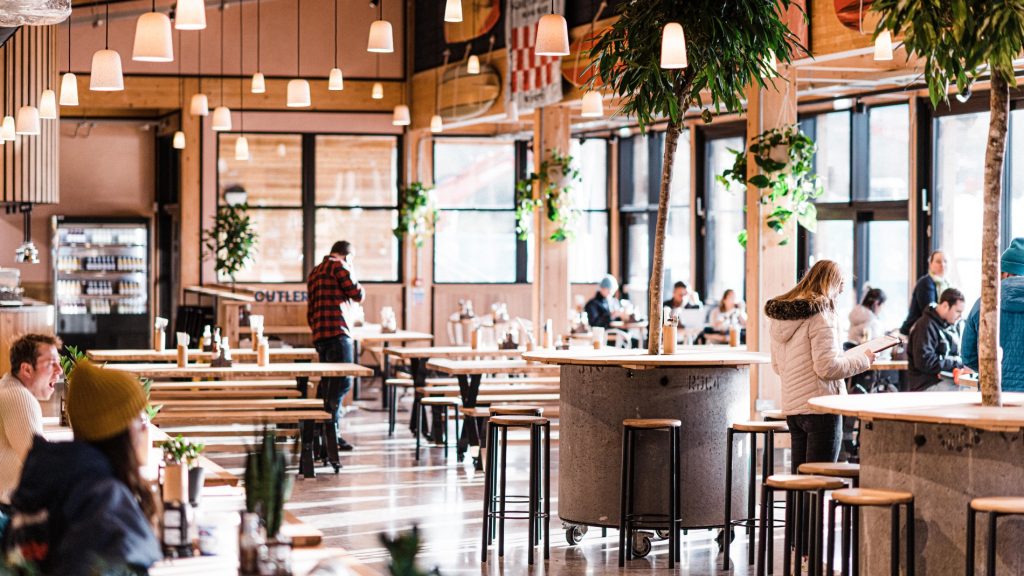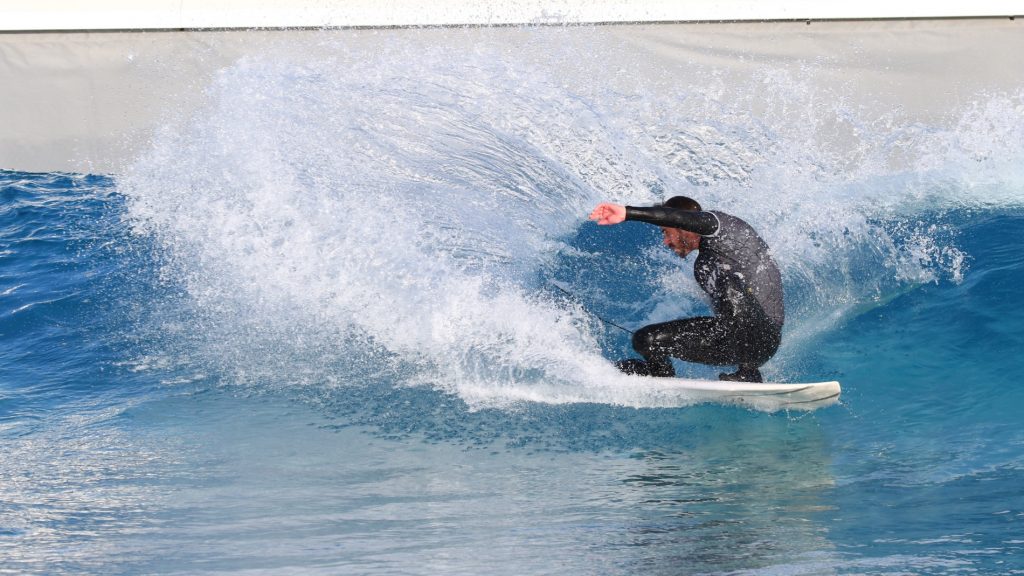Employee of the Month: Nick Rees of The Wave on staying core when the surf industry moves inland

Nick Rees loves British surfing. He cut his teeth on the beach running errands for Surfing England then translated that mojo into project management. His work eventually pushed him up to the Chief Operating Officer position. The crown jewel of his accomplishments being securing National Governing Body status for surfing in England, a big move that put UK surfing on the same shelf as other national sports like footy.
Rees now spends his days as a Wavemaker at The Wave, managing surf sector sales, partnerships and events and building inland surfing destinations as the company expands across the UK.
The regularfoot from Gower is a conversation ninja, quick to laugh at the right times but acutely aware when stats push a conversation deep into the weeds. Business issues get worked into the conversation only when the timing is right. But the most impressive thing about Nick is that he relates to everyone as a surfer first, a refreshing change in the analytics-driven boardrooms of today’s surf industry. Don’t expect a hard sell from this man.

Where did you start surfing and what’s your background?
Gower in Wales, that’s home for me. I started when I was around 18. I learned at Caswell and then surfed around the Gower, then I was a surf instructor and beach lifeguard there for a number of years. I surfed in Croyde, Devon where I lived for the eight years before moving to Bristol for The Wave.
How does your background tie together with your role at The Wave?
I love to socialize and travel. Surfing is the perfect excuse to do both of those things. My previous role was as Chief Operating Officer at Surfing England, so I’ve been fortunate to work with surfers and the surfing community for a number of years. My background, however, isn’t just surfing, I was an international hockey player (played at Glasgow 2014 Commonwealth Games) and I was also a trained golf professional, with experience and education in resort management, which has been super useful with The Wave.
“You realise that at the core of most brands are people who really
love surfing. And you don’t always get that in other industries.“
What do you do at The Wave?
I’m surf commercial manager. And I joined about a year and a half ago but really, emotionally, I started doing the job for seven years since when I was working with Surfing GB (before it merged and became Surfing England) when I first met Nick (Hounsfield). I had the job for getting the national status set for surfing in England, so that was things like school accreditations. We built the organization with some amazing people, namely Nick Hounsfield.
So how do you take that Surfing England experience and translate it to The Wave?
I see it as an ecosystem. We built it up like an ecosystem. So what goes on in surf operations links to retail which links to food and beverage which links to coaching and so on. Everything from the boards you ride to coaching is all interlinked. And that’s how we do The Wave.

You have a brand relationship with Rip Curl, but it seems every brand would be frothing to get a foot in the door here. How was that process?
We went to 28 different brands and went through an equipment resourcing process and filtered it down to Rip Curl and others. We went through criteria like sustainability and sourcing and it all came down to Rip Curl. They ticked every box.
How warm were the brands to the wave pools? Were some afraid of being seen as non-core?
Oh, it was massive enthusiasm. I think especially once we talked to them in person and they saw that it wasn’t just a surf park. It is so much more than that and when we lifted the lid and explained how we want to engage with people, the excitement just went through the roof because the surf brands could see that we’re serious and legit. All the partnerships range from smaller brands like DryRobe who supply all of our coaches with gear on up to Rip Curl. The partnerships are providing for something that’s needed on-premises to surf. It brings the coastal products and feel inland. It brings them here.
Was it hard to be seen as authentic when you’re a wave pool?
Authenticity was central to all conversations and they can see that we are core. It wasn’t difficult to show that. We have the central concept of Wavemakers which means every single person in the company has the ability to make waves, not just in the lake but in other ways outside of surfing. You get an authentic team together and the culture comes naturally. We just needed to make sure everything we used was functional.

It sounds like everyone wants a piece of the wave pool market. Usually, the marketing role is reversed where you have to work really hard to bring brands on board. What was your process like?
It was a really structured process. I went to each brand and said, ‘look, this is how it’s going to play out. We’re looking for XY and Z in a partner. Come back to us in six weeks with a proposal. And then we went through three phases of everyone applying and submitting proposals and we had meetings with most of them. It allowed us to see through the marketing side of it and see how good the project is and how good the brand is. If you trust your partner and know that everything works, it makes everything easier.
What was really awesome was to get a gauge of how good this industry is. I loved working with so many different brands. You realize that at the core of most brands are people who really love surfing. And you don’t always get that in other industries. But I found that in every single brand we spoke with we found the core people. And it made the whole process better. Yes, their interest is business but they’re also genuinely interested in what the waves are gonna be like and when can they surf and all those questions that aren’t strictly business-related. They’re just surfers wanting to know how much fun they can have.
Related Coverage
